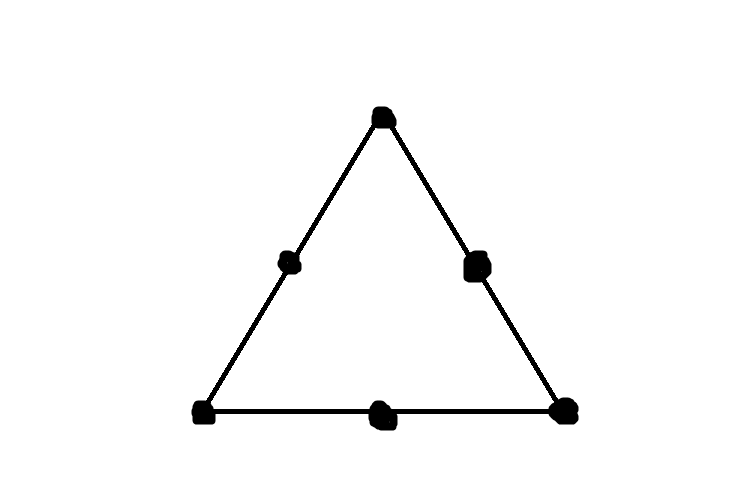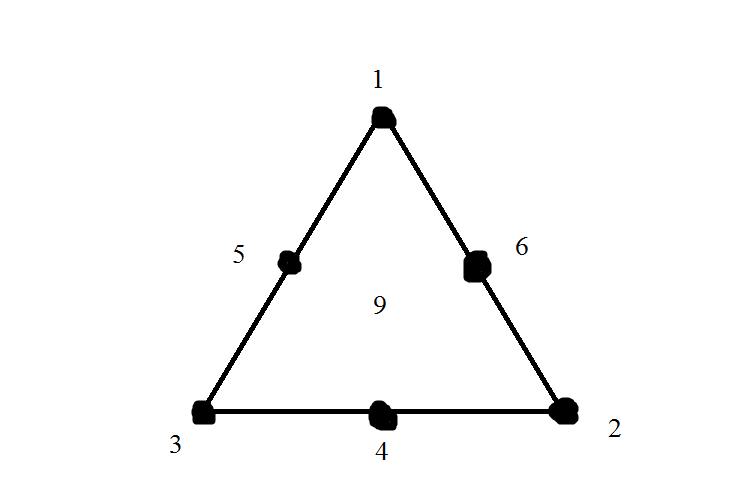Let $a,b,c$ be the numbers at the corners and $d,e,f$ be the numbers at the midpoints (say $d$ opposite $a$, $e$ opposite $b$, $f$ opposite $c$). To fix the rotation and reflection of a given solution, we can assume $a\leq b\leq c$. Clearly the largest of the three midpoint-numbers must be opposite the largest of the three corner-numbers and so on, so we also have $d\leq e\leq f$.
Let $x=a+b+c$ and $y=d+e+f$, and let $S$ be the sum from each side. We have two equations in $x$ and $y$:
- $x+y=21$ (the sum of $1,\dots,6$)
- $2x+y=3S$ (adding together all three copies of $S$ results in counting each corner twice and each midpoint once).
So $x$ and $y$ must both be multiples of $3$. Thus the three numbers $a,b,c$ summing to $x$ must consist of one that is a multiple of 3, one that is one more than a multiple of 3, and one that is one less that a multiple of 3; similarly for $d,e,f$. So the possibilities are:
- $a=1,b=2,c=3,d=4,e=5,f=6$, giving $S=9$
a=1,b=2,c=6,d=3,e=4,f=5, required condition not satisfied- $a=1,b=3,c=5,d=2,e=4,f=6$, giving $S=10$
a=1,b=5,c=6,d=2,e=3,f=4, required condition not satisfied- $a=4,b=5,c=6,d=1,e=2,f=3$, giving $S=12$
a=3,b=4,c=5,d=1,e=2,f=6, required condition not satisfied- $a=2,b=4,c=6,d=1,e=3,f=5$, giving $S=11$
a=2,b=3,c=4,d=1,e=5,f=6, required condition not satisfied


